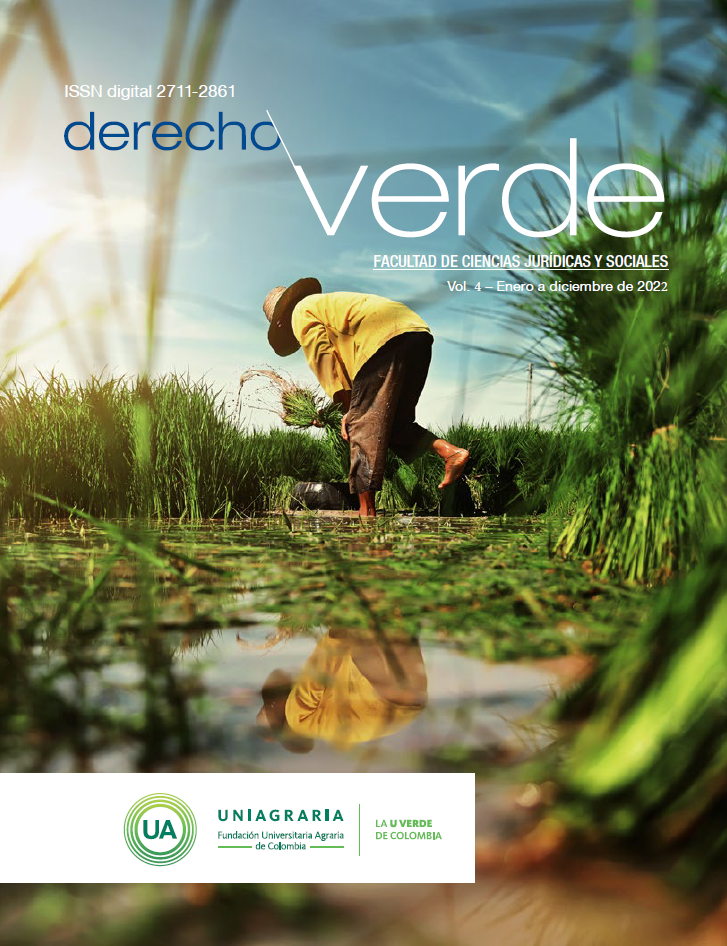Abstract
This article is developed through descriptive-qualitative research in which we resorted to the compilation and review of documents of normative framework, national environmental jurisprudence and several relevant articles on the subject, as well as a technique of analysis, with the purpose of identifying the essential considerations and decisional patterns that were taken into account in the decisions issued in Colombia, and that keep the feasibility of recognizing non-human entities as subjects of law, otherwise called rights of nature, and, in turn, determine the guarantees and legal implications of these decisions. The latter allowed conclusions to be drawn on the social and political contradictions generated in the national regulatory framework, recalling that the Colombian judicial system has a wide range of environmental regulations that seek to protect natural resources, and that allowed the use this mechanism.Downloads
Download data is not yet available.
